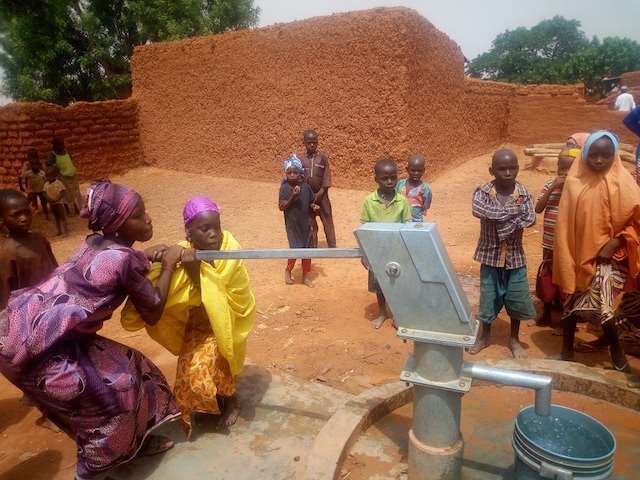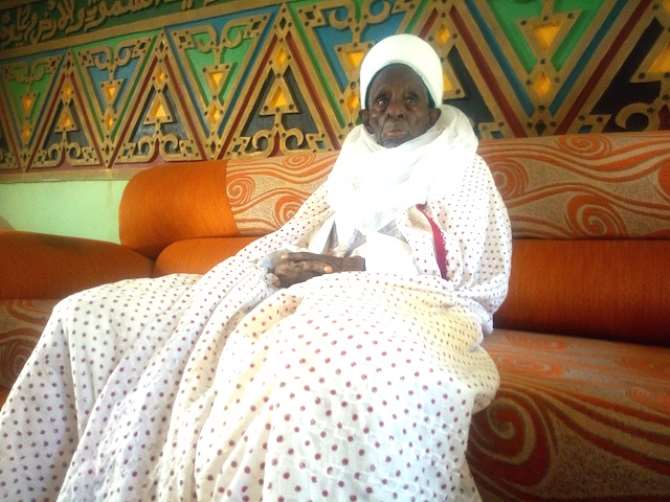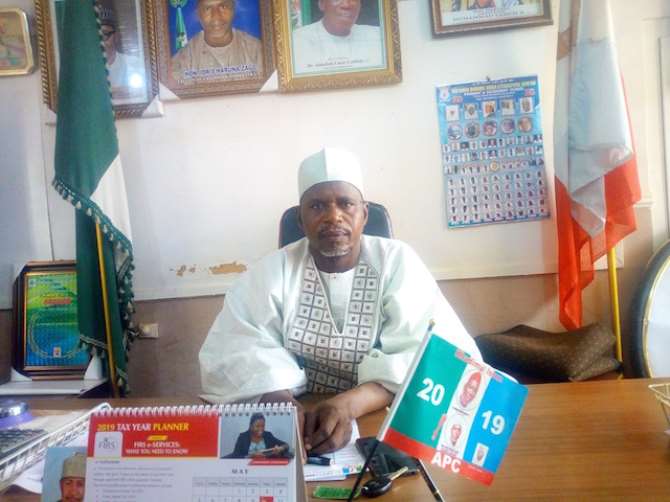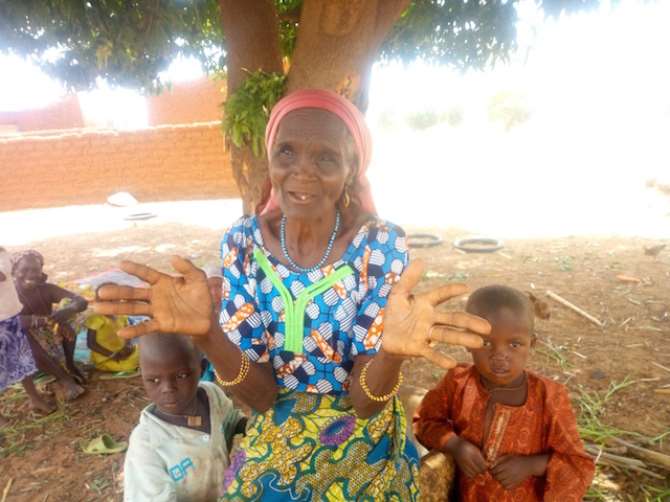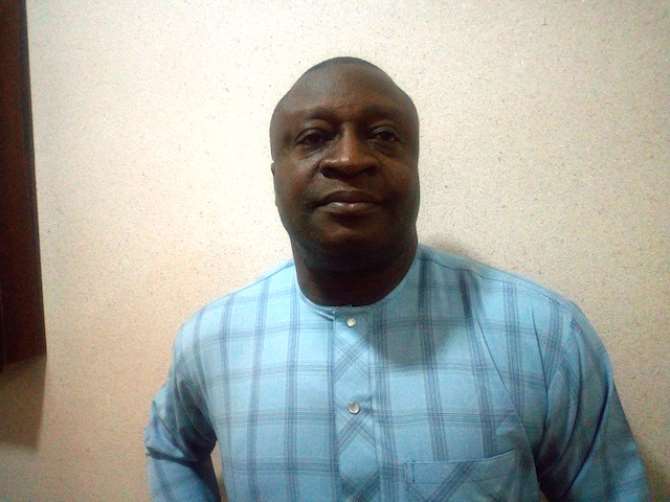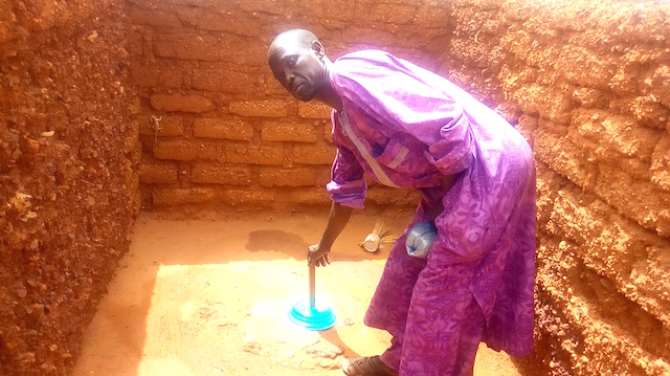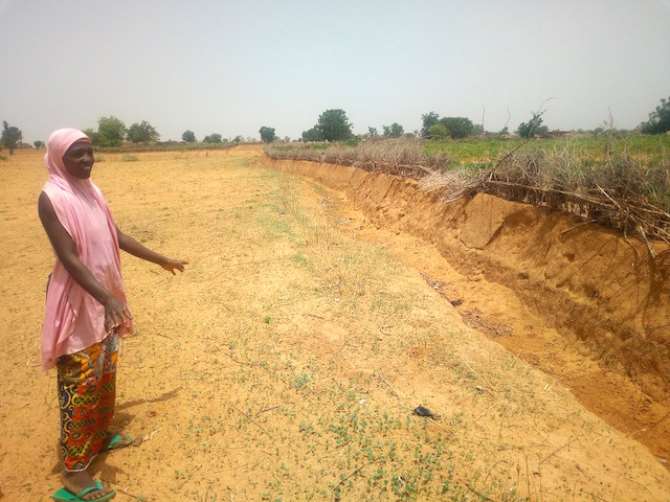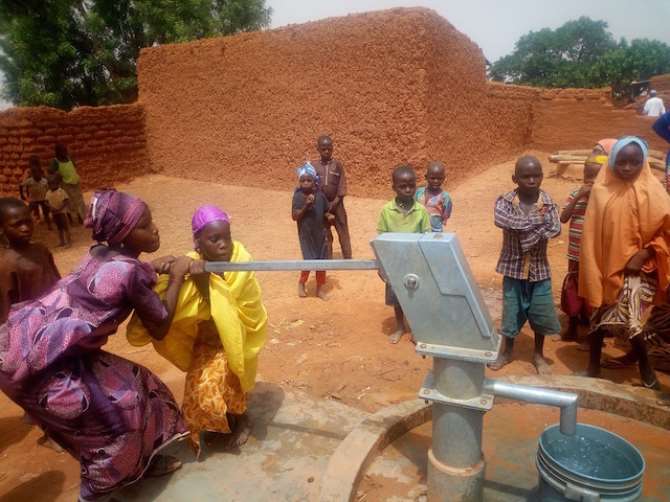Open Defecation: Tale of two Kano communities
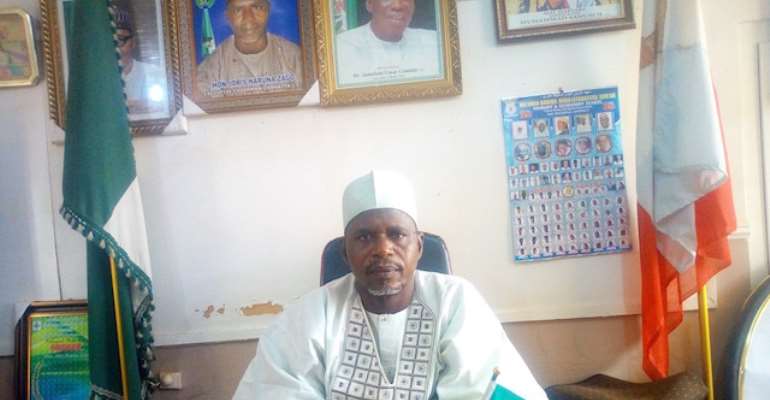
The South-West Bureau Chief of The Nigerian Voice, Hameed Olawale Oyegbade who was in Kano writes on the situation of open defecation in Jadawa-Fulani and Yammawar-Kafawa communities justifying the #endopendefecation and #cleannigeria campaign by federal government with the support of UNICEF.
Dr Muktar Adnan, Serikin Bai of Kano and District Head of Dambatta
Away from the buzz and noises of Kano metropolitan areas, the journey to the village was pleasant on the expressway, save for the incessant stop by military men at checkpoints. Even, for almost 15 minutes off the tarred road, the dusty route on the untarred road, bordered by farms on both sides was also motorable. With the sight of spun concrete electric poles and cables on them, a visitor would conclude that social life and development might not be too far away.
Hon Idris Haruna Zago, Chairman of Dambatta LGA, Kano
As the dust raised by moving vehicles settled, from a few hundred metres away, the neatly constructed mud houses at a settlement surfaced. Welcome to Jadawa-Fulani community in Dambatta Local Government Area of Kano. It is a calm and serene atmosphere here and the dwellers of this community are happy, particularly the children who exude joy with smiles on their faces as they play around in the community. The dwellers of this community are predominantly farmers and they are working very hard producing food for the teeming population in the state.
However, the serenity of Jadawa-Fulani community was smeared by horrible stench from faeces deposited by human beings in open places. This is because the houses in the village were built without toilets and the villagers are practising open defecation. This has exposed the community to serious danger in terms of health consequences. The community dwellers were not oblivious of the implication of dirt on their health but they seemed not aware that open defecation constitutes the major percentage of their problem.
Hajiya Sadia Umaru, the 68-year-old woman in Jadawa-Fulani community
Sadika Bello, a housewife in Jadawa-Fulani community took The Nigeria Voice to an open place where her household usually defecate. She explained that they are out of options since they do not have toilet. “My husband did not build toilet in our house. We come out here whenever we want to defecate. Other people in the community do the same. As a housewife, I’m not happy with this because of the embarrassment, especially when men are passing by at the time I’m defecating here. The men will see me because there is no cover. I pleaded with my husband to build toilet in our house and he promised to do so but he hasn’t”, she said.
Another woman in the community, Zinai Abubakar also frown that apart from the issues of health implications of open defecation, the people of the community, particularly the women and children face a lot of risks when they go out at night to defecate. She said “Whether during the day or at night, we come out to defecate in that open space. We know that it is delicate for our safety apart from the risk of sickness. But since there is no toilet, what can we do? We have to defecate”.
Bioye OgunjobiUNICEF WASH Specialist
A 68-year-old woman in the community, Hajiya Sadia Umaru said the issues of sanitation in the community has been a major problem and that apart from lack of toilet, they do not have good water. According to her, “We are facing serious challenges in terms of sanitation. We want to maintain clean environment but this can only be possible when we have good water and toilets. We need help. We want water and toilet in this community.”
Dr Rafiu Isamotu, the immediate past Commissioner for Health in Osun State said “open defecation is not a good habit. It poses danger to human health, especially the children. Open defecation could cause helminths or parasitic worms and the effects would be chronic blood loss, heavy parasitic worms which can lead to malabsorption of nutrient. This could make the children fall sick and lead to school absenteeism. Therefore, people must desist from the practice of open defecation.”
Abdullah Ibbra, a resident of Yammawar-Kafawa showing his toilet
Meanwhile, as Jadawa-Fulani is still grappling with open defecation and its attendant consequences, its neighbouring community in just a stone’s throw away, Yammawar-Kafawa continued to enjoy its serenity and liberation from the scourge of open defecation. Each family compound in Yammawar-Kafawa has a toilet and the dwellers including the children have imbibed the culture of using toilet. The people of Yammawar-Kafawa take the issue of cleanliness with seriousness.
Malam Abdullah Ibbra, a resident of Yammawar-Kafawa said he built a toilet in his house after a sensitization by officials of the United Nation’s Children Fund (UNICEF) who educated the community on the danger of open defecation and the benefits of having and using toilet. “Since the UNICEF officials came here and told us that open defecation can cause sickness, I decided to build toilet in my house and I did. Other people in this community also build toilet and no one is defecating outside here.”
Another resident of the community, Suleiman Nura also said that he built toilet in his house to prevent his household from practising open defecation. He said “I built this toilet to prevent my wives and children form going into the bush to defecate. I thought my wives and children how to wash their hands when they come out from the toilet. UNICEF told us that if we use toilet and wash our hands properly, we will not fall sick. It is true, we enjoy good health. We thank God”.
Sadika Bello showing the open place for defecation by her household.
While people of Yammawar-Kafawa community have been liberated from open defecation, their neighbours in Jadawa-Fulani community are among the 47 million Nigerians that are still practising open defecation. According to the 2018 Water, Sanitation and Hygiene National Outcome Routine Mapping (WASH NORM) survey, 24 percent of Nigeria population (47 million people) are practising open defecation. Also, findings revealed that Nigeria ranks second among countries practising open defecation globally.
A Water, Sanitation and Hygiene Specialist with the United Nations Children Fund (UNICEF) Mr Bioye Ogunjobi said Nigeria loses about 1.3% (N455 billion) of GDP annually due to poor sanitation and a third of that cost is as a result of open defecation. He said more than 100,000 children under five years of age die each year due to diarrhoea; of which 90 percent is directly attributed to unsafe water and sanitation.
Speaking on the urgent need to tackle the menace of open defecation in Ngeria, Ogunjobi said it has serious economic, social and health effect on the people. He said Nigeria is the second country with the highest children’s deaths due to diarrhoea. “This has impact on child development. In fact, 1 in 4 children under five years of age in Nigeria exhibits severe stunting, while 1 in 10 children is wasted, due to frequent episodes of diarrhoea and other Water, Sanitation, and Hygiene (WASH) related illnesses. He said frequent episodes of Water, Sanitation and Hygiene related diseases cause low productivity among the people in which children would miss school and adults would be absence from work, as affected people take time off to heal, and some to take care of a sick relative”, he said.
The Serikin Bai of Kano and District Head of Dambatta, Dr Muktar Adnan in a chat with the Nigerian Voice promised to work on community leaders in the Dambatta to make sure that people desist from open defecation and cultivate the habit of using toilet so as to guarantee good health. He said “In my next meeting of the community leaders, I will tell them to make sure that our people stop open defecation and maintain high level sanitation. We will make sure that our people wash their hands with soap after using toilet.”
Also, the Chairman of Dambatta LGA, Hon Idris Haruna Zago pledged to intensify efforts on sanitation in the local government “We have been making efforts on sanitation through the department dedicated to WASH in this local government. We will not relent. We will stop our people from practising open defecation. We will ensure clean environment in Dambatta”, Zago said.
The Head of Child Rights Information Bureau in the Federal Ministry of Information and Culture, Mr Olumide Osanyinpeju in a chat with The Nigerian Voice pleaded with Nigerian to cultivate the habit of using toilets and desist from practising open defecations because of its attendant risk and consequence on human health, especially on the children.
Osanyinpeju said the federal government would not relent in the campaign to end open defecation in the country. “To address this situation, President Muhamadu Buhari declared a state of emergency in the Water, Sanitation and Hygiene (WASH) sector in November 2018 and reaffirmed Nigeria’s commitment for eliminating open defecation in the country. The president launched a national campaign to jump-start the country’s journey towards becoming Open Defecation Free (ODF) nation by 2025”, he said.
He added that the Federal Ministry of Water Resources with support from UNICEF, in partnership with Inter-Ministerial Agencies, Civil Society Partners, the Private Sector, and the people of Nigeria, is currently leading the ODF campaign to end open defecation in the country by 2025, and achieve universal access to safely manage sanitation by 2030.
Osanyinpeju said the "Clean Nigeria: Use the Toilet" campaign is one of the most ambitious behaviour-change campaigns in Nigeria with a strong citizen / public engagement component. Leveraging on what is currently working in the States with Local Government Areas’ certified Open Defecation Free; this campaign mode will create a national movement with elements of policy advocacy, public advocacy, grassroots mobilization, and private sector engagement."
"Sanitation is essential to the survival and development of children. It can reduce the severity and impact of malnutrition. It can also help in reducing the spread of intestinal worms, as well as promoting dignity and boosting safety, particularly among women and children", he said.
children at Yammawar-Kafawa communities
A Communication Specialist with UNICEF, Dr. Geoffrey Njoku urged the media to step up reportage of issues around sanitation and to sensitize the people on the need to shun open defecation and imbibe use of toilet. Dr Njoku urged media to create awareness on the benefits of cleanliness and the dangers of open defecation to peoples' health and wellbeing. He said the campaign to combat open defecation has been going on with the #endopendefecation and #cleannigeria.
Proffering solution to end open defecation in Nigeria, Ogunjobi said the nation needs two million toilets per year between 2019 and 2025 to get the 47 million Nigerians to use toilet and stop open defecation so as to achieve the target of Universal Basic Sanitation. He said Nigeria would reap huge benefits if government could stop the practice of open defecation. “Based on empirical study, every naira invested in the water and sanitation sector results in economic benefit ranging from N1,080 to N12,240 ($3 to $34). The gains come through savings in healthcare costs, increased productivity, and entrepreneurial opportunities for the sanitation market”, Ogunjobi said.
